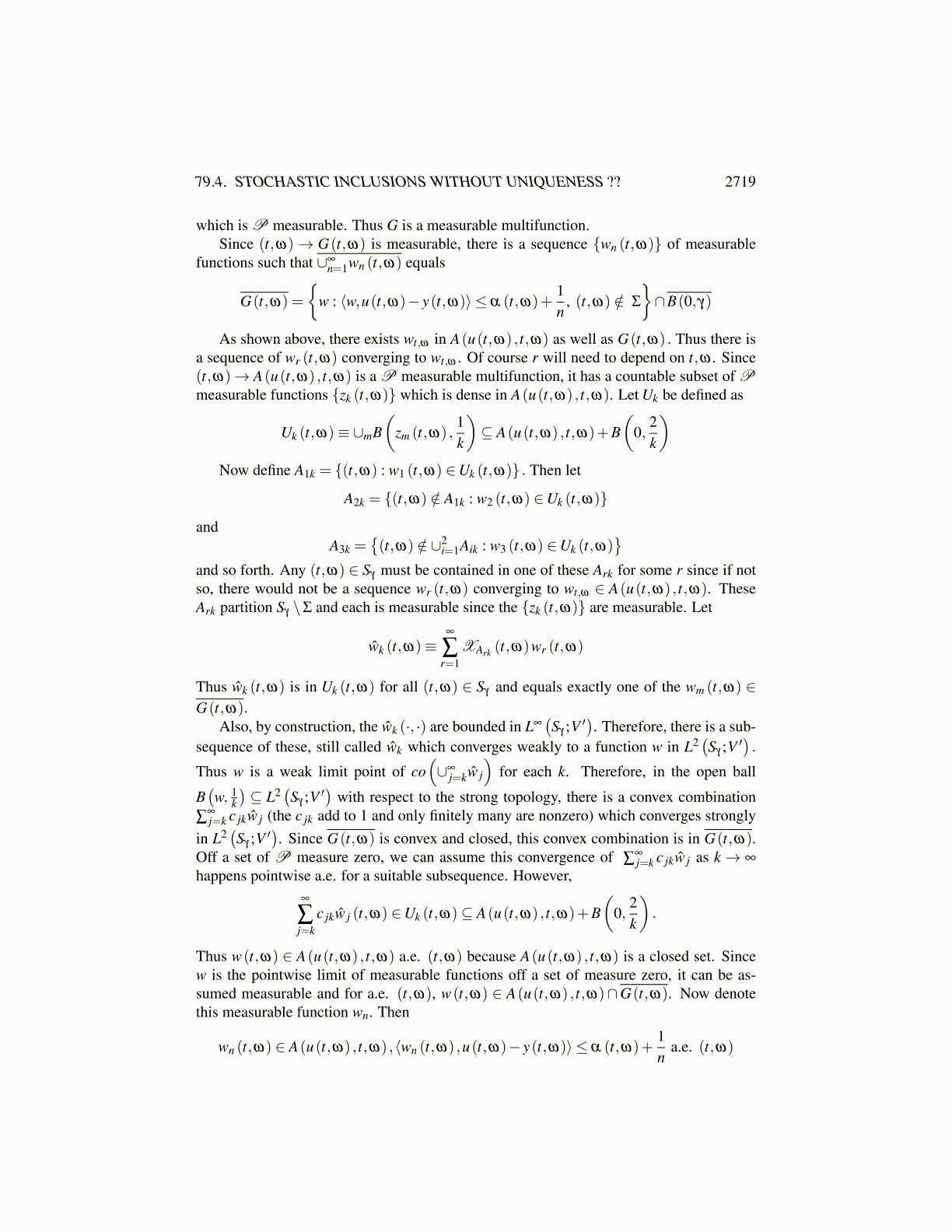
79.4. STOCHASTIC INCLUSIONS WITHOUT UNIQUENESS ?? 2719
Suppose to the contrary that there exists y such that
η = lim infn→∞⟨zn,un− y⟩V ′,V < ⟨z̃,u− y⟩V ′,V , (79.4.68)
for all z̃ ∈ Âu. Take a subsequence, denoted still with subscript n such that
η = limn→∞⟨zn,un− y⟩V ′,V
Note that this subsequence does not depend on (t,ω). Thus
limn→∞⟨zn,un− y⟩V ′,V < ⟨z̃,u− y⟩V ′,V for all z̃ ∈ Âu (79.4.69)
We will obtain a contradiction to this. In what follows, we continue to use the subsequencejust described which satisfies the above inequality 79.4.69.
The estimate 79.4.66 implies,
0≤ ⟨zn (t,ω) ,un (t,ω)−u(t,ω)⟩− ≤ c(t,ω)+C ||u(t,ω)||pV , (79.4.70)
where c is a function in L1 ([0,T ]×Ω). Thanks to 79.4.65,
lim infn→∞⟨zn (t,ω) ,un (t,ω)−u(t,ω)⟩ ≥ 0, a.e.
and, therefore, the following pointwise limit exists,
limn→∞⟨zn (t,ω) ,un (t,ω)−u(t,ω)⟩− = 0, a.e.
and so we may apply the dominated convergence theorem using 79.4.70 and conclude
limn→∞
∫Ω
∫ T
0⟨zn (t,ω) ,un (t,ω)−u(t,ω)⟩−dtdP
=∫
Ω
∫ T
0limn→∞⟨zn (t,ω) ,un (t,ω)−u(t,ω)⟩−dtdP = 0
Now, it follows from 79.4.67 and the above equation, that
limn→∞
∫Ω
∫ T
0⟨zn (t,ω) ,un (t,ω)−u(t,ω)⟩+dtdP
= limn→∞
∫Ω
∫ T
0⟨zn (t,ω) ,un (t,ω)−u(t,ω)⟩
+⟨zn (t,ω) ,un (t,ω)−u(t,ω)⟩−dtdP
= limn→∞⟨zn,un−u⟩V ′,V = 0.
Therefore, both ∫Ω
∫ T
0⟨zn (t,ω) ,un (t,ω)−u(t,ω)⟩+dtdP
and ∫Ω
∫ T
0⟨zn (t,ω) ,un (t,ω)−u(t,ω)⟩−dtdP